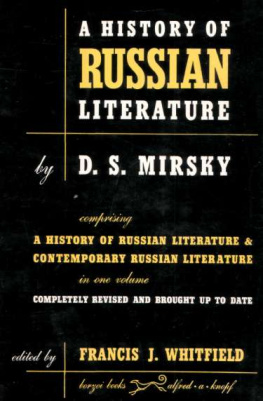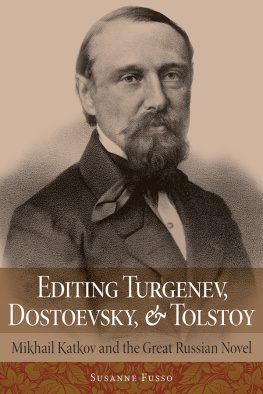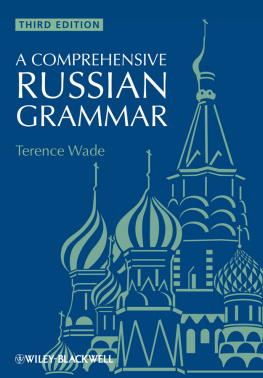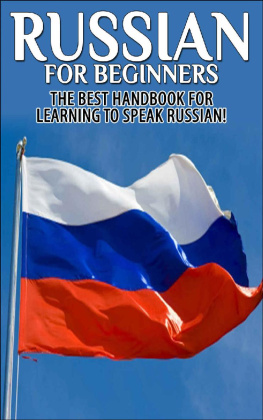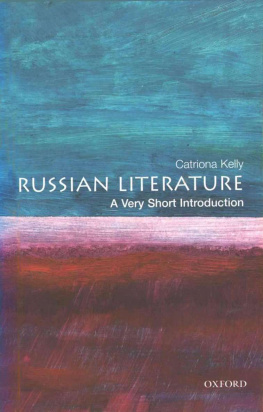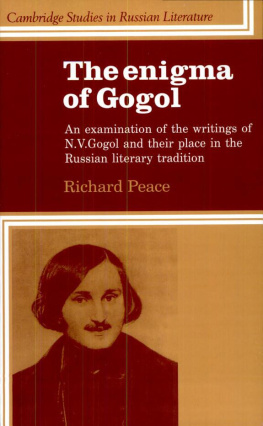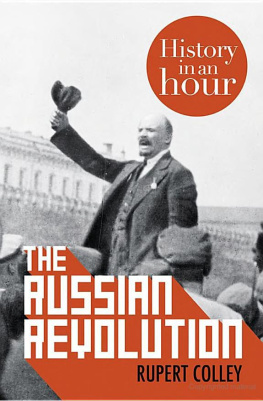Editors Preface
When I was invited to prepare a new edition of Mirskys History of Russian Literature and Contemporary Russian Literature, it was with the understanding that the text must be abridged so that the two books might be published as a single volume of moderate size. To satisfy this requirement I have omitted from the second book an interchapter on the October Revolution, the paralipomena on drama and literary criticism, two short sections on minor and non-literary novelists of the early years of this century, and those sections at the end of the book where Mirsky had to give very incomplete pictures of contemporary writers on the basis of what they had produced by 1925. Elsewhere I have been forced to gain space by reducing the number of quotations and the amount of biographical material; I have recast sentences and paragraphs, and I have introduced certain typographical changesall in order to preserve as much as possible of Mirskys literary criticism. Where I have discovered errors of fact, I have silently corrected them, and I have occasionally added small items of biographical and bibliographical information. I have not consciously altered the tone of the authors literary or political1 judgments, and I have not attempted to extend or modify his interpretations of authors who continued to write after he had finished his work. At the publishers request I have added a postscript reviewing the general development of Soviet literature. Since it was not my purpose to shorten Mirskys text in order to make room for my own, I have kept this section within the closest possible bounds, and the reader is referred to the
1 It is an interesting fact that Mirsky eventually returned to Russia, where for a time he took active part in Soviet literary life. He has long since disappeared from the scene, and the Soviet Embassy in Washington has been unable to give me any recent information concerning him.
bibliography for more extensive works on the subject. The bibliography is restricted to general studies in English and to anthologies of English translations. Our libraries are rather better provided with Russian bibliographical material than they were twenty-five years ago, and it would have been wasteful of precious space to reproduce the detailed lists that Mirsky gives. It is expected that the student will consult the Handbook of Slavic Studies, edited by L. I. Strakhovsky, for further information.
In the original prefaces the author expressed his gratitude to the British Museum, the London Library, Sir Bernard Pares, Jane E. Harrison, N. B. Jopson, and, for permission to reprint, to the Hogarth Press and the Slavonic Review. My own thanks are due to Professor George V. Bobrinskoy, to my colleagues in the Institute of Slavic Studies and the Slavic Department at the University of Californiaparticularly Dmitry Grigorieff and Lawrence L. Thomasand to Robert H. Glauber. For their work in the preparation of the manuscript I am indebted to Charles J. Adams, Mrs. Jay Calhoun, Mrs. Reuel N. Denney, and Maren E. Dunkel.
I have preserved Mirskys dedications of the original two books. This edition is respectfully offered to Dr. Paul E. McGeorge.
F. J. W.
Berkeley January 1, 1949
Book One: to 1881
To Jane Ellen Harrison
Chapter 1
The Literature of Old Russia
(Eleventh to Seventeenth Centuries)
From its beginning in the eleventh century to the end of the seventeenth, Russian literature lived entirely out of touch with contemporary developments of Latin Christendom. Like Russian art it was a branch of the Greek trunk. Its germs were brought late in the tenth century from Constantinople, together with the Orthodox faith. But as it was the practice of the Eastern Church to favor the translation of the Scriptures and liturgies into the vernacular, the clergy of the converted nations had no need to learn Greek, and the absence of Greek scholarship in Russia had as its consequence the absence of all acquaintance with secular Greek literature and pre-Christian classical tradition.
THE LITERARY LANGUAGE
The literary language of Old Russia is known as Old Church Slavonic. It is based on some Bulgarian dialect from around Salonika, elevated to the rank of a liturgic and literary language in the ninth century by the apostles of Slavdom, SS. Cyril and Methodius. It was used by the South Slavs and Romanians as well as by the Russians. It was saturated with Greek influence in vocabulary and syntax, and was very different from what we may imagine the spoken language to have been. In the course of time this artificiality increased, and while the spoken languages (in Russia as well as in the Balkans) underwent, between the eleventh and fourteenth centuries, rapid and radical changes, Church Slavonic remained stationary and even tended to approach still closer to its Greek
prototype. In the fourteenth century especially, South Slavic clerks made a thorough revision of the Scriptures and liturgies in order to make the Slavonic text more literally adequate to the Greek. This form of Church Slavonic became the literary language of Muscovite Russia.
Though the only literary, Church Slavonic was not the only written language. The administrative offices of the Russian princes and communes evolved a more vernacular form of writing, and towards the end of the fifteenth century the language of the Muscovite chanceries became the official language of the Empire. It is expressive and often picturesque, but it was obviously incapable of displacing Slavonic for literary purposes. As for the literary language, the vernacular element insinuated itself only to the degree of the writers illiteracy or inability to find Slavonic molds for expressing their stronger feelings. The Russian vernacular was first consciously used for literary purposes in the third quarter of the seventeenth century in the writings of a great and original man of geniusthe Archpriest Avvakum.
LITERARY CONDITIONS
Authorship was not one of the recognized activities of Old Russia. There were no writers, but only bookmen (knizhniki). The reading of books (knizhnoye pochitanie) was a respectable and edifying occupation, but new literary works were written only when some practical necessity called for them. The humanistic tradition, so lively in Constantinople, was not transmitted to Russia, and traces of the acquaintance of Russian clerics with even the names of the ancients are negligible. Imaginative literature formed an insignificant part of the reading of the Old Russians. When he wanted to read, the Russian bookman turned to the holy books and other collections of edifying matter. There was no need for fresh literary invention.
As in the mediaeval West, the copying of books was regarded as a work agreeable to God, and was, especially in pre-Muscovite times, carried on mainly by monks. Printing was introduced into Russia very late. The first book printed on Russian territory (in Moscow) appeared in 1564. Even after the establishment of the printing press the cost of printing was so great and printers so few
that only books of the greatest importance (Bibles, liturgies, statutes, and official instructions) could be printed. Till about the middle of the eighteenth century there were more manuscripts than printed books in circulation. Not until the reign of Catherine II did mediaeval conditions cease to prevail in the Russian book market.
Judged exclusively by its literature, Old Russian civilization cannot fail to produce an impression of poverty. But it would be wrong to regard literature as its principal expression. The very nature of this civilization, traditional and ritual, reduced literary originality to very little. The real expression of the creative genius of Old Russia is its architecture and painting, and those who want to gauge its true value must turn to the history of Russian art rather than to that of literature.
Next page
